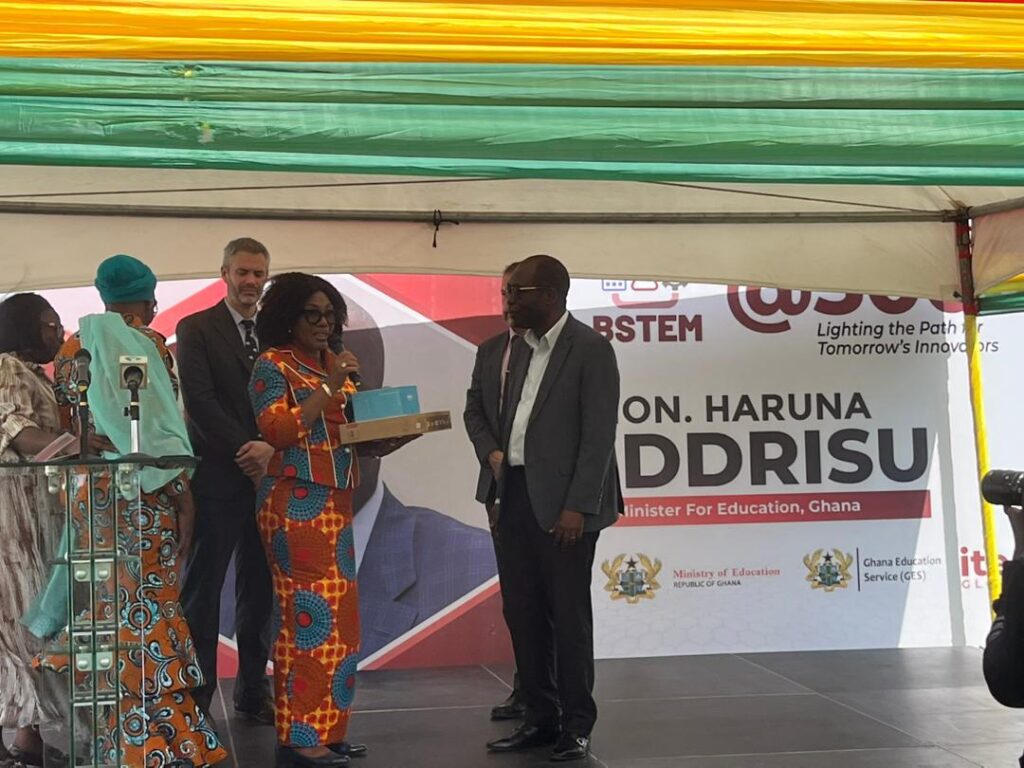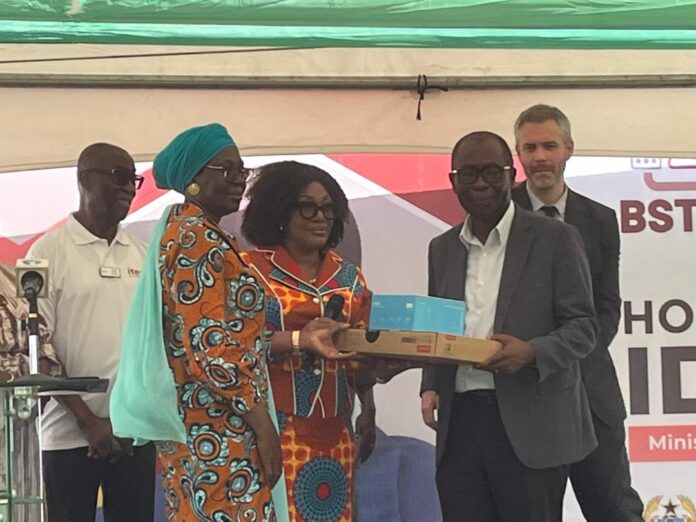More than 3,000 basic schools across Ghana are set to receive comprehensive science, technology, engineering, and mathematics (STEM) kits as part of the nationwide expansion of the B-STEM programme.
In the Greater Accra Region alone, 299 schools across 29 districts are benefiting from the latest phase of distribution.
At a handing-over ceremony in Accra, Chief Director of the Ministry of Education, Lydia Obenewah Essuah, described the initiative as a major milestone in revitalising a programme that began between 2012 and 2016.
“This initiative has evolved into the current B-STEM programme as national educational needs expanded. Though delayed over the years, it was fully revitalised in late 2024 with renewed energy and clear direction,” she said.
Mrs. Essuah explained that Ghana’s curriculum now demands inquiry-based learning, creativity, and problem-solving—skills that require practical tools to support classroom teaching.
The STEM kits include laboratory tools, digital devices, and instructional materials to guide learners through experiments and real-world scientific applications.

“The true value of this equipment depends on how effectively teachers use it. That is why the Ministry is pairing the rollout with continuous teacher training,” she added.
Highlighting global shifts driven by artificial intelligence, robotics, biotechnology, and renewable energy, Mrs. Essuah stressed that Ghana must prepare a generation of critical thinkers capable of thriving in a competitive global landscape.
Director-General of the Ghana Education Service (GES), Prof. Ernest Kofi Davis, reinforced the importance of early STEM exposure, noting that over 350 teachers have already undergone training in modern STEM pedagogy, classroom application, and peer-teaching methods.
He revealed that under Phase One of the expansion, 1,000 junior high schools and 4,400 primary schools will receive STEM equipment.
“The long-term vision is to extend the programme to kindergarten, creating a continuous STEM learning pathway from early childhood to higher education,” he said, urging schools to safeguard the equipment to ensure it improves learning outcomes.
Chief Executive Officer of iTEC Global, Sam Godding, outlined the training and distribution process. Regional advisors trained district trainers, who will in turn train one mathematics and one science teacher in each school.
Each school will receive over 1,000 items, including test tubes, beakers, calculators, geoboards, polygon sets, robotics kits, laptops, projectors, and a wide range of teaching aids. According to Mr. Godding, equipment has already been supplied to about 3,000 schools, with another 500 expected in the coming weeks.
Once fully implemented across its three phases, the project will reach 10,000 junior high schools, 14,000 primary schools, and 14,000 kindergartens nationwide.
Greater Accra Regional Director of Education, Hajia Katumi Nagtomah Attah, praised the Ministry of Education, GES, and iTEC Global for their collaboration. She assured the public of proper distribution, effective classroom use, and regular maintenance of the materials.
Describing the equipment as an investment in Ghana’s future, she urged teachers, headteachers, district directors, and learners to embrace the initiative, noting that it will significantly boost practical science and mathematics education across basic schools.


